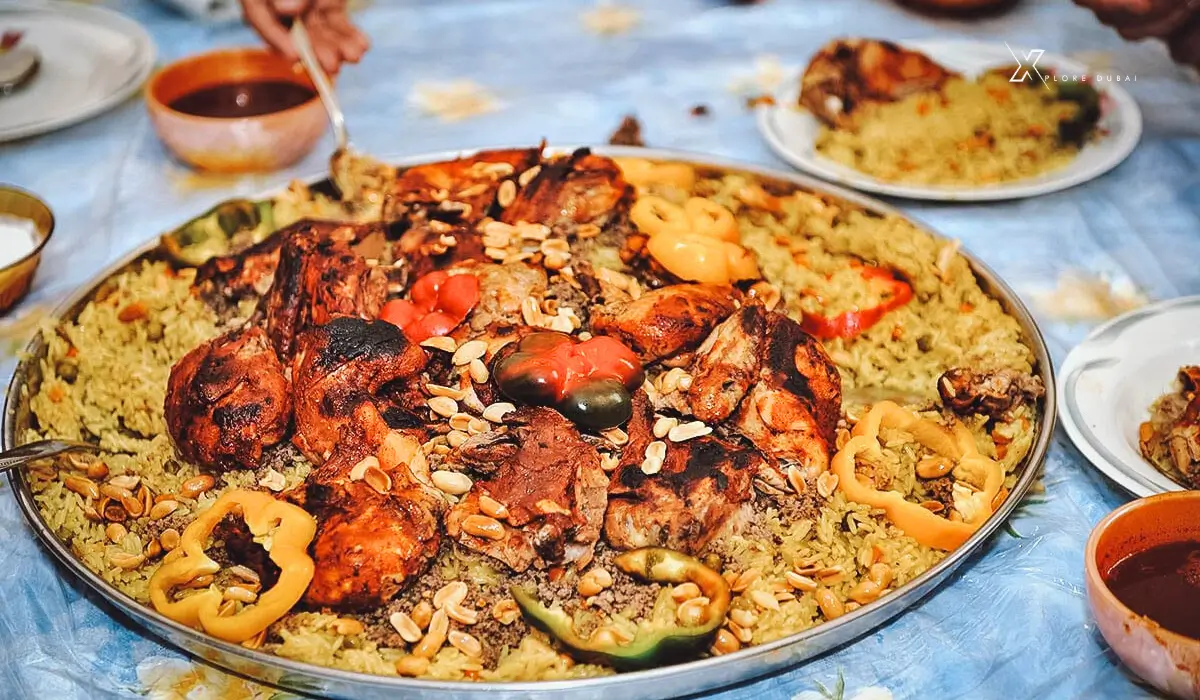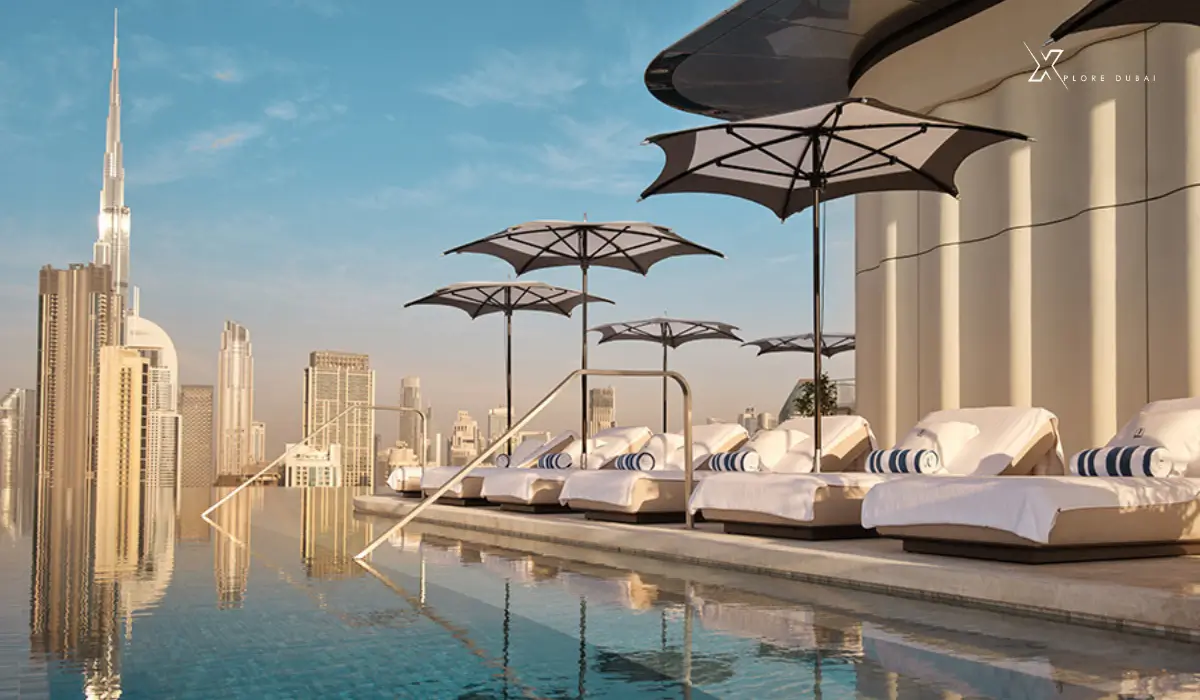Food is more than sustenance; it’s a fundamental part of daily life that plays a key role in health, cultural identity, and morale, even behind bars. The United Arab Emirates, known for its prosperity and adherence to global standards, extends these principles to its prison system. Understanding how food is prepared, monitored, and served to prisoners in Dubai reveals a unique approach that balances cultural considerations, nutritional needs, and the broader values of respect and welfare.
This blog post will take you on a detailed exploration of “Dubai Jail Food” to uncover what prisoners eat, how meals are prepared, and how food mirrors cultural and religious diversity. If you’ve wondered what makes Dubai’s approach to prison food different from others around the globe, or how regulations like the Legal Drinking Age in Dubai reflect the city’s unique cultural standards, keep reading.
What Is Dubai Jail Food Like?
Prison meals in Dubai, like many aspects of the emirate, are a structured and thoughtful experience. Meals typically include nutritious basics like rice, vegetables, and protein, ensuring a balanced diet that caters to the physiological and cultural needs of inmates. Each day, prisoners are served three main meals, accompanied by snacks or light refreshments in certain cases.
Portions are determined to meet caloric intake guidelines set by health authorities, and care is taken to provide sufficient nutrition while reducing issues like malnutrition or obesity. For example, a regular meal could include a serving of biryani with chicken, accompanied by a fresh vegetable salad and fruit.
While these meals resonate with local culinary traditions, they’re also designed to meet international regulations for human rights and dignity.
Cultural and Religious Sensitivities in Dubai Prison Food
One of the defining factors of Dubai prison food is its alignment with cultural and religious needs. All meals are prepared according to halal guidelines, ensuring they are permissible for Muslim inmates. During Ramadan, special meal arrangements are made for inmates fasting from dawn to sunset. For example, prisoners receive Suhoor (pre-dawn meal) and Iftar (post-sunset meal), both of which reflect traditional Emirati culinary choices like dates, laban (yogurt drink), and Harees (a savory wheat and meat porridge).
Dietary needs stemming from other religions and cultures are also considered. Vegetarian options are provided for inmates who do not consume meat, while unique dietary accommodations are made for individuals with allergies or medical restrictions.
Focus on Nutrition and Health
Nutrition is a pillar of Dubai’s prison food system. Meals are curated to include a balance of proteins, carbohydrates, fats, and vitamins. For instance:
- Proteins are sourced from meats like chicken and beef and are also supplemented with plant-based alternatives like legumes.
- Carbohydrates come from staples like rice and bread, tailored to match culinary preferences while fueling the body.
- Vitamins and Minerals are prioritized through servings of fresh fruits and vegetables.
For prisoners with specific health conditions such as diabetes or hypertension, specialized low-sodium or low-sugar diets are offered. This healthcare-centric approach signals a commitment to both physical and mental well-being.
How Are Meals Prepared?
The logistics behind meal preparation in Dubai prisons are efficient and meticulous. Many prisons employ professional catering companies to oversee the process, ensuring high standards of hygiene, consistency, and safety. At times, inmates themselves may assist in food preparation under strict supervision, offering them an opportunity to develop culinary skills that can aid in rehabilitation.
Routine inspections ensure the kitchens comply with food safety protocols. Kitchens are equipped with modern infrastructure designed to scale meal preparations without compromising the quality of food.
UAE’s Culinary and Cultural Influence
The cultural diversity of Dubai extends into its jail cuisine. Traditional Emirati dishes such as Kabsa (a spiced rice dish with meat) and regional specialties like lentil soups frequently make appearances on the menu. Additionally, the prisons consider popular dishes from the multinational expat communities of Dubai, ensuring that everyone feels included.
The approach demonstrates a unique blend of traditional Emirati hospitality and thoughtful diversity, showing reverence for the multicultural makeup of not just the city but the inmate population itself.
Festive and Special Meals
One particularly humane aspect of Dubai’s prison food system is its recognition of special occasions. During Islamic festivals like Ramadan and Eid, celebratory meals are distributed to inmates. These meals often include traditional desserts such as Luqaimat (sweet dumplings) and Maamoul (stuffed pastries).
Prisons also make an effort to respect the celebrations of non-Muslim inmates by serving them meals tailored to their own cultural or religious festivities. Instances like these highlight the UAE’s emphasis on inclusivity and dignity, which can also be seen in places like Dubai Mall Fashion Avenue Restaurants, where diverse culinary experiences cater to people from all walks of life.
Challenges and Feedback
Despite these efforts, providing prison meals comes with challenges. Some inmates, for instance, report dissatisfaction with portion sizes or a lack of variety. Prison authorities make efforts to address complaints through feedback loops and by periodically auditing their food programs. Still, as in any system, consistent improvement is the goal.
Global Comparison of Jail Cuisine
Dubai’s prison food systems stand in contrast to notable issues faced in other countries:
- Western Prisons: Many Western prisons serve highly processed, pre-packaged meals. Compared to Dubai, the emphasis on freshly made hot meals gives the UAE a unique edge.
- MENA Region: Dubai’s multicultural and inclusive approach is rare even within neighboring countries, where inmates often face stringent diets with fewer choices.
These differences elevate Dubai jail food as a potential benchmark for humane practices globally.
More Than Just Meals
Food also serves as a medium for rehabilitation. Some prisons offer culinary training programs that involve inmates in meal preparation. This not only teaches valuable life skills but also promotes accountability and teamwork.
Such initiatives are a testament to the UAE’s commitment to transforming its inmates into productive members of society upon their release.
The Financial and Logistical Puzzle of Prison Food
Feeding prisoners daily across the UAE is no small feat. Costs are tightly managed through government oversight and partnerships with catering services.
Behind the scenes, ingredient sourcing is coordinated seamlessly to maintain a steady supply of fresh produce and meats. This ensures the menu remains diverse while aligning with quality-control measures.
Final Thoughts on Dubai Jail Food
Dubai’s prison food system stands as a fascinating example of how nutrition, culture, and rehabilitation intersect. By remaining sensitive to diverse religious and cultural identities, ensuring nutritional adequacy, and tying food to larger social values, the UAE paints a picture of respect and inclusion.
For policymakers or cultural observers, Dubai jail food reflects a broader commitment to welfare, one that the global community might learn from. Could there still be areas of improvement? Certainly, but with a foundation so deeply rooted in education and respect, this system sets a commendable standard.















